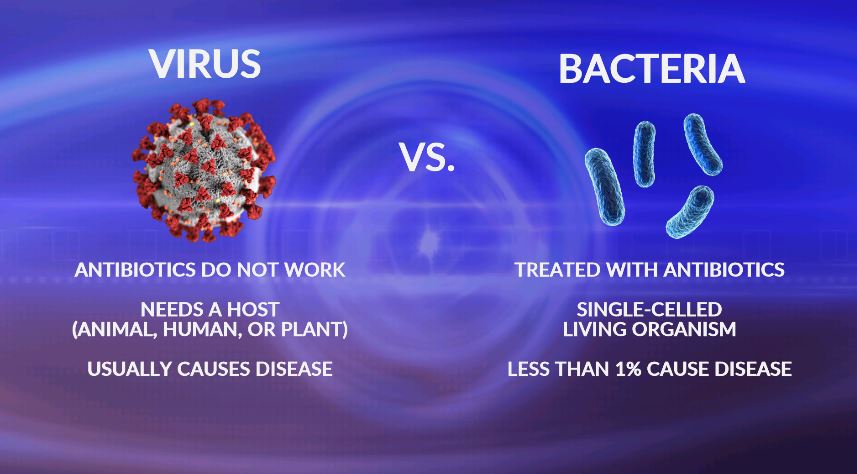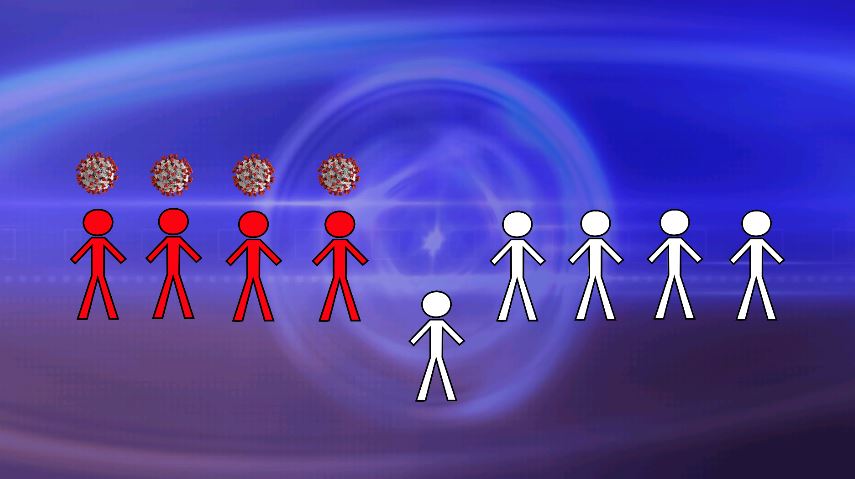(WTAJ) – Covid-19, is a term we all now know and has impacted our lives in so many ways. But what exactly is it? We talked to expert, Dr. Jessica Ericson, who is an assistant professor of pediatric infectious diseases at Penn State Health to find out, what exactly is a virus?
Dr. Jessica Ericson said, “A Virus is essentially pieces of genetic material, DNA or RNA, that is wrapped up in protein. And those bits of DNA, when they get into our bodies, use our own cells to make more copies of themselves.”
It is also important to note, that a virus is different compared to bacteria. A virus needs a host to survive like a person, plant, or animal. Bacteria does not need a host because it is a single-celled organism. Both can quickly spread, so how does a virus spread?

Dr. Jessica Ericson stated, “Respiratory viruses spread, through droplets, from the respiratory system. So from the nose, from the mouth, from the lungs, so when we cough or sneeze, or even if you talk and are the sorta person who spits a little when you talk, those viruses in those droplets… those water droplets, are spread out into the air.”
She went on to say, “And then they land on surfaces so you touch the grocery cart, that someone just sneezed on, you may get some of those droplets that have virus in them, on your hands and then you rub your nose, go from your hand to your nose.”
Scientist believe the the novel Coronavirus spreads like any other respiratory disease, but it is having a more dangerous impact on our lungs compared to the flu or a common cold.
“So it can very easily pass from one person to another to the next person, to the next. So there is nobody already immune to stop that chain of spread throughout the communities. So that is the biggest thing,” said Dr. Jessica Ericson.
Dr. Jessica Ericson is also very thankful, that this new Coronavirus is not having a major impact on most children.
She explained to us, that scientists have an idea of why children are not being impacted, but they do not know for sure.
“We have some clues that might be some of the difference is that their immune systems are working a little bit better to keep the virus out, and some really sick adults, the main problem there is that their immune system is working too much. They end up where their immune system is just going crazy. That their immune system kind of cannot turn off, and that doesn’t seem to happen very much in young children,” Ericson detailed.

To stop the spread, we can continue to take precautions that are in place until a successful vaccine is created, which is a tedious task. First, scientist need to find a specific part of the virus our bodies will respond to that will trigger our immune systems.
Next, they need to make sure that part of the virus triggers immune response, but in a safe way. Finally, they have to hope that piece of the virus will not mutate.
“That can be an extra tricky part if the piece of the virus we planned to use to make our vaccine changes, then our immune system is out of date and isn’t going to work anymore. So we have to pick a piece of the virus that isn’t going to mutate or mutate much, and that can be difficult,” according to Ericson.
Until a vaccine is ready to go, our best bet is to keep masking up, washing our hands, and taking as many precautions as we can.
Thank you to Dr. Jessica Ericson and Penn State Health for taking time to answer our questions and providing this information!

